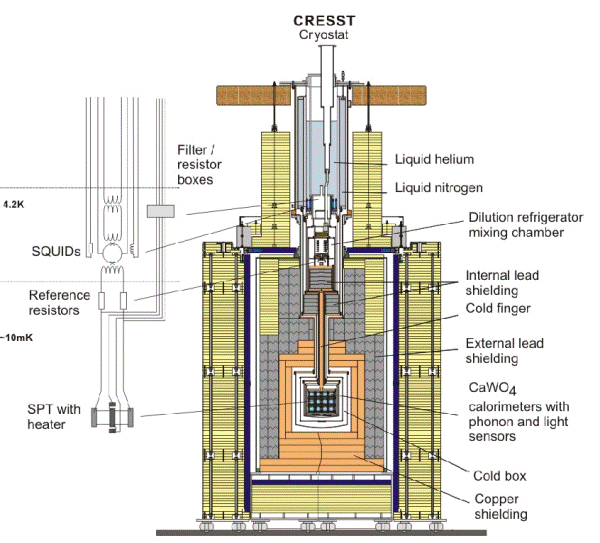Multi-channel SQUID system for CRESST II
CRESST II is designed to run with an absorber mass of up to 10kg, made up of
33 detector modules. The detectors are cryogenic phonon scintillation
detectors requiring two SQUID readout channels for each modules. To read out
these detectors, the Oxford group has designed and built a 66-channel SQUID
system using components supplied by
Supracon AG, Jena,
Germany; Star Cryoelectronics, Santa Fe, USA; and
Tekdata Ltd Stoke-on-Trent, UK. The
system is made up of the following parts:
- 66 SQUID sensors mounted at the bottom on the main helium bath in the
CRESST cryostat
- Electronics to control the SQUIDs and
supply the current to bias and stabilise the detectors
- Cryogenic cabling to connect these components
within the cryostat.
We carried out an extensive series of tests to characterise the noise,
drift and slew rate of the SQUIDs, and the heatload and crosstalk in the
cables. These showed that the system meets the requirements of the
experiment. It has been used to read out the signals from CRESST
detectors since 2005.We are now investigating possible readout
schemes for EURECA.
References:
The 66-channel
SQUID readout for CRESST II, S. Henry et al., Journal of
Instrumentation, 2 (2007) P11003.
Development of superconducting contacts for the CRESST II 66-channel
superconducting quantum interference device readout system, B.
Majorovits et al., Review of Scientific Instruments 78 (2007)
073301.
|

|


